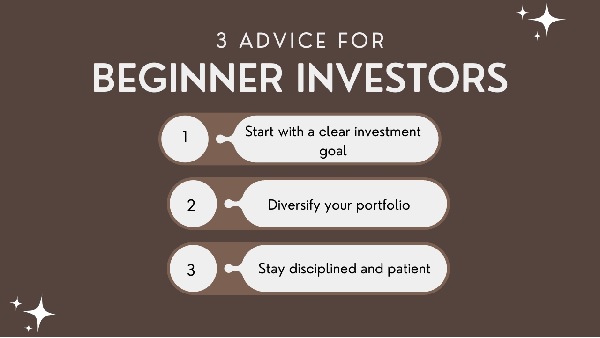Introduction
Investing is an essential part of wealth building and financial security. However, the world of investments can be overwhelming and confusing for many people, especially those new to it. To become a successful investor, you need a solid strategy and a plan that fits your goals, needs, and risk tolerance. I have to provide tips on becoming a better investor, so you can make informed decisions and achieve your financial objectives.
Tip 1: Make a clear investment objective at the outset
First step to becoming a successful investor is to define your investment goal. A clear plan will help you focus on what you want to achieve and how to get there. Once you have a clear purpose, you can set a realistic investment plan that aligns with your goals, time frame, and risk tolerance. Some common investment goals include retirement, education, home buying, or saving for a rainy day.
Consider your current financial situation, income, expenses, debts, and other financial obligations to set a realistic investment goal. You should also assess your risk tolerance, which is your willingness to take risks and withstand market volatility. A conservative investor may prefer a low-risk, low-return investment, while an aggressive investor may choose high-risk, high-return investments.
Once you have set your investment goal, you must track your progress and adjust your plan accordingly. Having a realistic time frame and avoiding setting unrealistic expectations is essential. Regularly monitoring your investments can help you stay on track and make informed decisions.
Tip 2: Diversify your portfolio
Diversification is crucial to reducing investment risk and increasing returns over time. A diversified portfolio means investing in different asset classes, sectors, and regions, which can help balance out the ups and downs of individual investments. In addition to stocks, you can also invest in bonds, real estate, commodities, and other assets.

To maintain diversification, you need to periodically rebalance your portfolio by adjusting your asset allocation based on changes in market conditions or your investment goals. For example, if your stocks have performed well and now represent a more significant percentage of your portfolio, you may need to sell some of them and invest in other assets to rebalance your portfolio.

Tip 3: Stay disciplined and patient
One of the biggest challenges of investing is controlling your emotions and avoiding impulsive decisions. Emotional biases, such as fear, greed, or overconfidence, can lead you to make hasty investment decisions that may harm your returns. To become a successful investor, you must stay disciplined and patient and avoid making decisions based on short-term market trends or news.
Successful investors such as Warren Buffet or John Paulson have achieved great returns by following a disciplined and patient approach, investing in quality companies or assets, and holding them for the long term. One way to stay disciplined is to have a long-term investment strategy and stick to it. It would help to avoid frequent trading or trying to time the market, as it can be risky and lead to high transaction costs.
Conclusion
Investing can be a powerful tool for achieving financial goals, but it requires solid strategy and discipline. By following the tips outlined in this post, you can become a better investor and make informed decisions to help you achieve your goals. Remember to start with a clear investment goal, diversify your portfolio, and stay disciplined and patient. Investing can be complex, and if you are not comfortable making investment decisions independently, you may seek professional advice from a financial advisor.
A key component of building wealth and securing one’s financial future is investing. To become a better investor, you must start with a clear investment goal, diversify your portfolio, and stay disciplined and patient. Remember, investing is a long-term game, requiring patience, discipline, and a willingness to learn and adapt to changes in the market. By following these tips and staying informed about the market, you can make informed decisions and achieve your financial objectives.





